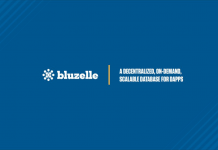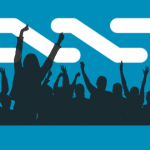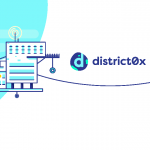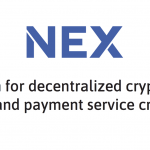Shift is the new web. Decentralized and versatile. Combining a blazing fast, Dapp-ready, delegated Proof of Stake blockchain with the interplanetary file system - for a decentralized, resilient and highly extensible web 3.0 platform. Building the new world wide web. Just better.
Shift offers:
- A decentralized app (Dapp) platform, that part is based on Lisk code (anecdotically, it started as the first Ethereum fork in history). Shift provides powerful, native smart contract support for the fast development and use of blockchain apps. You can create tokens, and so have ICOs.
- A gateway to IPFS hosting through the Phantom, which is the first Shift Dapp.
- A Decentralized Web (like maidsafe).
- Decentralized storage (like siacoin).
- Built-in payment method. Using the underlying blockchain, monetization of user-created content is seamless, direct and easy to set up.
- Decentralized marketplace. Trade and exchange freely, across borders and without fees imposed on you by centralized marketplaces. No more takedowns of markets. eternal glory. Revenue from fees collected. Billions of dollars’ worth in trading volume.
- Uncensorable web. Speak your mind and share the knowledge you want, wherever you Because no one can censor you. There is no single point of failure and no single provider to censor. Your content is safe from removal.
- A unique ID for users, valid across the whole network. Permanently embedded in the blockchain to make it tamper-proof.
FEATURES.
IPFS.
Shift will use a system that is far superior to other storage coins like STRJ and SIACOIN. Shift has a plan to use the interplanentary file system for decentralized hosting of websites and content. Utilizing IPFS, Shift is a permanent, fully meshed, peer based data storage. Nodes in the IPFS network form a distributed file system. IPFS seeks to connect all computing devices with the same system of files.
P2P cloud storage, the Internet of things and many decentralized services all profit from this. There are other fundamental areas that Decentralized storage helps with including:
- Privacy: Decentralization forces an increased focus on data privacy. Data is distributed across the network and end-to-end encryption technologies are critical for ensuring that only authorized users can read and write. Access to the data itself is entirely controlled algorithmically by the network as opposed to more centralized networks where typically the owner of that network has full access to data, facilitating customer profiling and ad targeting.
- Data Portability: In a decentralized environment, users own their data and choose with whom they share this data. Moreover they retain control of it when they leave a given service provider (assuming the service even has the concept of service providers). This is important. If I want to move from General Motors to BMW today, why should I not be able to take my driving records with me? The same applies to chat platform history or health records
PHANTOM.
Phantom is Shift’s core product, the gateway to IPFS. It will be the other half of the Shift Network, next to the Delegated POS blockchain. Phantom will be the solution to an ever-growing privatization of the internet, powered by IPFS and enabling users to participate, collaborate, publish and exchange anything from ideas to value freely, while even monetizing their content and efforts – directly.
In its current state, IPFS comes as a simple command line tool, missing a user-friendly interface to enable anyone to participate. Through Phantom, it will be possible to implement IPFS and enable the first step on the road to a better, decentralized web. Since Shift’s highest aim is to provide an all-inclusive experience for anyone to participate in the new web, one of their first priorities is user friendliness with a working GUI and simple Drag-n-Drop functionality in their upcoming release, being a first step in that direction.
The only thing you need to publish a website, is a wallet! That’s great, right? And even better: you can publish websites with an existing TLD extension like .com, .net, .io, and many more. You just point your DNS to a Phantom gateway and the gateway delivers the website from any of the thousands of IPFS nodes in the world!
Here is an early screen to give a first impression of how easy interaction with Phantom will be, even in these early stages. Important to state is that this is already functional, not just a static page without the functionality!
SHIFTHUB.
ShiftHub is a central user “dashboard” to access Phantom’s future functionality like registering domains, creating websites, communicating with other users, sending and receiving funds, exploring the SHIFT blockchain, creating blockchain apps and much more.
BLAZING FAST, d-APP READY BLOCKCHAIN NETWORK.
Because Shift NRG uses the same underlying software blockchain as Lisk there are many advantages in doing so. It will soon have Dapp sidechains in which programs that are completely decentralized will be developed on and additional use cases will be created because SHIFT is the cryptocurrency that will be required to interact with the ecosystem of DApps.
If you add a Dapp to Shift, an entry will be made on the blockchain. This will “register” it and makes it visible to everyone. There will be a universal and decentralized Dapp Store which lists ALL DApps on the network. (Doesn’t matter if working, not working, offline, online, not complete or completely finished).
FREE…GET PAID.
The new web is completely free. You are not charged a single bit, when you use the new web. No intrusive advertising, no tracking, no data gathering. Quite the opposite, you can even earn by hosting content and data for your peers; The new web allows anyone to profit from their work directly, either by securing the network as a Delegate in one of the 101 spots or as a Blockchain-App developer by earning the sidechain fees their Apps generate.
DELEGATED PROOF OF STAKE (DPoS).
Every blockchain based crypto-currency to date, uses a consensus algorithm in order to determine who will generate the next block. Proof of Delegates is the consensus algorithm used by Shift. It combines elements taken from the Proof of Work (PoW), Proof of Stake (PoS) and a community element of elected delegates.
The Shift network is secured and/or protected by 101 active delegates. Each delegate is elected by the stakeholders of SHIFT. Once voted into the list of active delegates they are given the authority to generate blocks. Every Shift stakeholder can be a part of the electoral process, by placing votes for delegates in their favour, or by becoming a candidate themselves.
The duty of the 101 active delegates is to secure the Shift main blockchain (i.e. the mainchain). In order to provide an incentive to secure the network, transaction fees on the network are distributed equally amongst the 101 active delegates. In addition, an inflationary block reward (aka forging reward) is distributed to each block generator.
DPOS differentiates from regular PoS (Proof of Stake) as only the top 101 delegates (determined by voting weight of voters) are actively forging and securing the network. The use of delegates mitigates the potential negative impacts of centralization. Daniel Larimer, founder of BitShares and DPoS, argues that 101 single-purpose servers are more decentralized (and cheaper) than a thousand or so miners on a few mining pools. Already, Bitcoin is centralized to the point that with just three mining pools, you can control 51% of the network. With just four ASIC chip manufacturers, you can control 90%+ of production of future hashing power.
What are the drawbacks of DPoS?
Having a fixed amount of active delegates may result in a less decentralized network. Ideally, the community aspect of the network should fix that issue. If only a small part of the Shift users vote for delegates this problem becomes worse. In the future the number of active delegates can also be increased, if the demand for it is there.
The DPoS variant of Shift also introduced inflationary forging rewards in order to have an incentive to become a delegate. While this is no real drawback some might have concerns over an inflationary crypto-currency.
Delegates.
These are Shift accounts which are registered to be delegates on the network (making them special types of accounts). After the registration your account ID appears in the list of all delegates. The registration fee is 60 SHIFT, however this may be subject to change in the future.
Every delegate is placed at a specific position on the delegate ranking list. The number of votes determines that position. All delegates with a rank between 1 and 101 are active delegates. All other delegates with a rank over 101 (102-∞) are classified as standby delegates. These accounts do not actively forge and are only waiting for an opportunity to be in the top 101.
There are two types of delegates: Pools and Solo. A lot of delegates are pools, sharing their rewards with the voters. So anybody can stake Shift indirectly. The amount you get normally depends on how much of the rewards the pool owner shares and how much voting power you have. Here you can find a calculator to see how much you can expect from the pools if you vote for them with your account. The higher your voting weight is, the more you’ll receive in return. https://dpostools.com/SHIFT
Forging.
Forging is another word for block generation, at Bitcoin this process is called mining. The term “forging” was coined by the Nxt community. Earlier PoS systems called the process “staking”. Everyone can enable forging, but only the 101 active delegates will actually forge and earn rewards.
There are two methods to enable forging. You can login to the client user interface and enable forging by hand. The problem with this method is, that if your client restarts (due to an error or server update) forging will need to be enabled again.
For optimum productivity, it is recommended to run your own node and insert your passphrase into the config.json file. Best to do this before you become an active delegate. Upon starting the Shift client, forging will be automatically enabled for all accounts for which passphrases are specified in the config.json. Which means after restarting your client, forging will continue without interruption.
Earnings.
In addition to the forging reward earned for every block your delegate generates, your delegate will also earn an equal share of all regular transaction fees occurring on the network. The total share of regular transaction fees, is dependent on the volume of transactions occurring on the network for a given round. The forging rewards occur at a fixed rate per block, currently 1 SHIFT per block.
Delegate productivity.
Another very important detail about delegates is their uptime / productivity. This is also visible as a percentage and doesn’t represent the productivity of the node, but rather the number of generated blocks by one delegate in relation to the number of blocks, which were possible to generate for the delegate. The productivity should be close to 100% to make sure that the network can run stable all the time.
Voting for delegates.
In order to determine the delegate rank position, Shift has a decentralized voting mechanism built directly into the client. Users can vote for any delegates registered on the network. The more coins one has, the more “voting power” they have. This means that a vote from someone with 10000 coins counts 10000x more than someone with only 1 coin.
One vote equals 0.00000001 SHIFT, and a user always uses his entire SHIFT balance for every vote. To vote the user has to pay 1 SHIFT as a network fee and he can vote for 33 delegates in one go. He can vote for 101 delegates in total, for this he needs to initiate 4 votings (33+33+33+2 = 101). It is not possible to vote for the same delegate twice.
The number of votes are represented as an “Approval” within the client, and is shown as a percentage. An approval of 1% equals 1% of all SHIFT in the network. At launch this would be 1,000,000 SHIFT (later more, due to inflation) or 100,000,000,000,000 votes. In order to become an active delegate, you must attain a higher approval percentage than the delegate on rank 101. This means you will overtake them in the ranking list and become the 101st delegate, and therefore, become one of the 101 active delegates.
SHIFT (SHIFT) OVERVIEW.
Coincapmarket ranking:144.
Current coin Value: $1.87 (-14.94%).
Market Cap: $20,881,710.
24hr volume: $484,931.
Circulating Supply: 11,143,747 SHIFT.
(As of 2/9/2017).
Shift is the “coin of the realm” for the Shift Blockchain. It is currently used to incentivizes delegates to run high performing nodes and users via delegated proof of stake. Delegates forge 2 coins every minute or ~2880 coins per day or ~520k in 6 months.
How was distribution before DPOS handled?
SHIFT had a 12 month proof of work period (Dagger Hashimoto) before migrating to delegated
proof of stake. There will be no further proof of work mining.
Exchanges.
Wallets.
Brain wallet.
As with LISK, SHIFT does not employ traditional desktop wallets. Shift uses a brain wallet; instead of storing keys in a wallet file, security works via a secret passphrase. Brain wallets are decentralized and kept on the network. When you create an account, your secret passphrase is used to generate your account on the blockchain. Once your account is generated, you can unlock it and access it by using your passphrase.
Get the wallet here: PaperWallet.shiftnrg.nl
SHIFT VS. LISK.
Shift’s focus is decentralized hosting (web platform) and Lisk’s focus is DApps and sidechains(App platform.). But since they’re based on the same codebase, in theory they could each do both. … the teams just have different focuses and different goals. Shift and Lisk have contributed to each other to make the codebase the better in the past, it’s not really a competition. …. Also a big differentiation is Shift’s use of IPFS.
SHIFT VS. MAIDSAFE.
Shift is kind of like maid, only without encryption and tor, but it will be available under normal DNS, so shift will be better for adoption. The other ‘competitors’ ignore the fact that over half the webs traffic is mobile also.
IN CLOSING.
Shift has a lot of potential. With a very low market cap of only $20 million USD. A very low supply of circulating coins (around 11 million total coins in circulation) and the same technology as LISK (a cryptocurrency valued at a much higher market cap), what is not to like here?
[currencyprice currency1=”SHIFT” currency2=”usd,eur,btc”]
[currencygraph currency1=”SHIFT” currency2=”usd”]






















